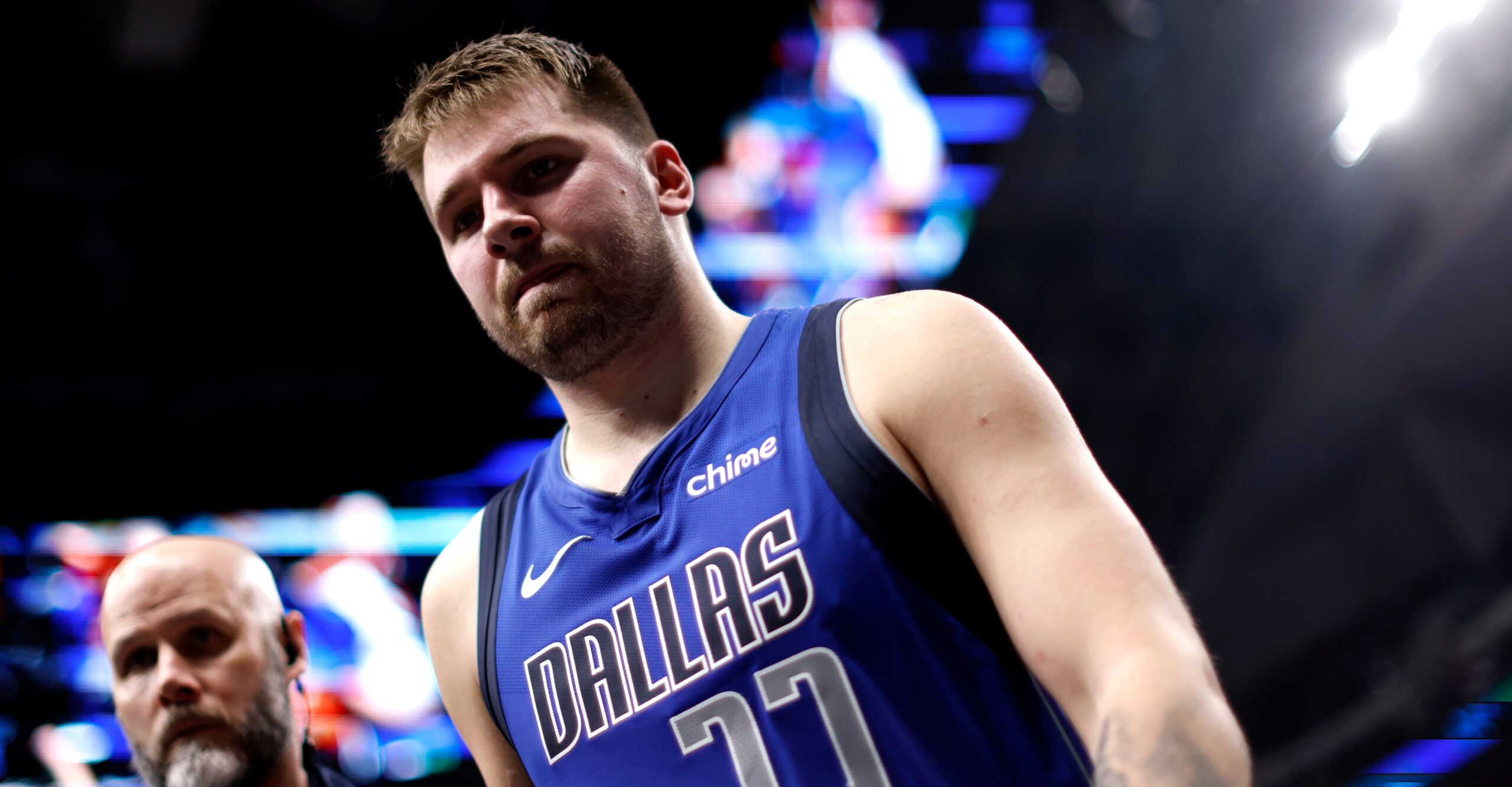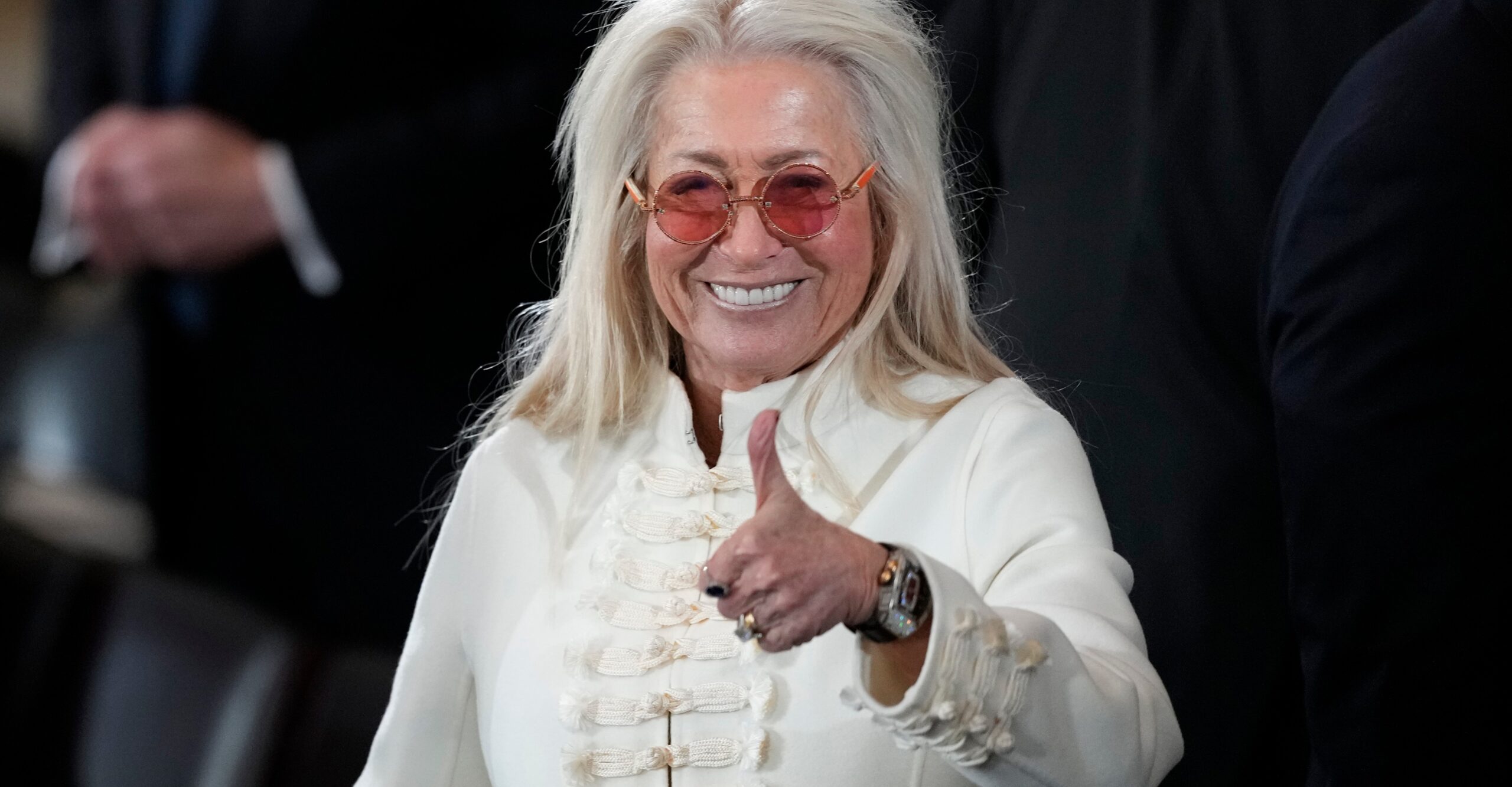
Welcome to Know-It-All. In the age of information overload and so many things to care about, Vox experts explain what you need to know to get into a particular corner of culture.
I don’t want to sound like too much of an expert, but this past weekend, something big and weird happened in the world of basketball.
As someone who doesn’t pay all that much attention to sports, stories from that world only cross my radar when no one can stop talking about them. But as a gossip, I really love mess. If you’re like me, you might notice that the discussion you’re overhearing about the Dallas Mavericks trading star Luka Dončić to the Los Angeles Lakers on February 1 has been confusing, emotional, and seemingly very, very juicy. Angry fans? Bad business deals? What is going on here?
To better understand why so many people have strong opinions and wild theories about a tall Slovenian man and a billionaire power broker named Miriam, I asked a self-made expert, Vox senior correspondent and big, big basketball fan Dylan Scott to break it all down for us.
Dylan, why are all our coworkers talking about someone named Luka?
Luka Dončić, one of the best young professional basketball players in the world, was traded from the Dallas Mavericks, where he had been a star player for six seasons, to the Los Angeles Lakers. It is hard to capture in words how shocking this was even for people who follow the league closely. Hell, even for people in the league. I can send you multiple quotes of players saying they don’t understand how this could have happened.
We’re all prone to hyperbole after a big story breaks, but you could easily make the argument that it’s the most surprising transaction in the history of the NBA. I saw the news when I was about to go to bed on Saturday night and stayed up for another two hours scrolling Reddit — and I don’t even root for these teams!
Is it really all that weird to trade a player?
It’s not weird to trade a player. That happens all the time. It’s weird to trade a player like Luka Dončić.
Okay, speed round: Luka was a teenage phenomenon in Europe’s professional league before he came to the NBA. Dallas acquired him with the third pick in the 2018 draft. (That is a whole other story, but we can’t get into it now.)

He quickly became one of the best offensive players in the league and is now probably the second-best. He won Rookie of the Year in his first season. Every year after that, he has made the All-NBA First Team, meaning he was one of the five best players in the league. Last year, he averaged the most points per game of any player.
But wait, there’s more. He is especially good in the playoffs. Last year, even with an injury, he led the Mavericks to the NBA Finals. They lost, but Luka is still only 25 years old. Most NBA players reach the peak of their powers in their late 20s.
The future looked so bright. Most other teams are desperately searching for their own Luka Dončić. So it was and remains mystifying why the Mavericks would give him up.
What is the team leadership doing here?
Okay, you want to trade Luka Dončić. Weird choice, but okay. So you’re definitely going to get as many good players and/or draft picks as you can for him, right? If you’re giving up your best player, you want to give yourself the tools to be good again in the future.
Instead, the Mavericks got one excellent player who is seven years older than Luka and may not have too many great seasons left (Anthony Davis), one somewhat promising young player, and one draft pick. That is not much compared to previous blockbuster NBA trades. The Mavericks leadership has openly admitted they did not ask a bunch of teams for their best offers. They talked to the Lakers. This is not how you do business in the NBA or, uh, anywhere else.
It’s very confusing and lends itself to all kinds of speculation. Some people think the Mavs were sincerely worried about Luka’s health because he got hurt this year (though he has been a very durable player up until now). Some think he had a personality clash with the coach or other senior officials. A select few even think the Mavs could be better without him.
But the most interesting explanations that I’ve read have come from people like long-time NBA reporter Henry Abbott, who covers the league with a scrutiny that corporate outlets often don’t. It’s still hard to be sure — we’re all guessing here — but it seems to me the basic story would be: The Mavericks ownership didn’t want to keep paying Luka hundreds of millions of dollars, because they don’t really care that much if the team is good. But they also knew the fans would be furious if they openly shopped their best player.
So they did a deal quickly and quietly to minimize any blowback that could stop it before it was completed and, frankly, they just don’t mind that a bunch of fans are mad and say they will never watch again now that the trade is done, especially if the blame ends up being placed primarily on the general manager, Nico Harrison. They’re not really that interested in keeping Mavs fans happy or trying to win a championship. That’s not why the franchise is valuable to them. (Again, this is the theory.)
Why wouldn’t the Mavericks owners care if the team is good or if the fans disavowed them?
Sports fans may think rich people buy sports teams for love of the game. But for the billionaires, these are business transactions and they primarily want to make money.
The Mavericks owner is Miriam Adelson, widow of Sheldon Adelson, who presides over a massive gambling empire. It is a matter of public record, as Abbott put it, that the Adelsons would really like to build an enormous sports arena/casino gambling complex. (I am envisioning a sportsbook on the mezzanine level, such synergy.) They have been trying to build one in Dallas, but local politics have gummed it up.

There is a theory that the Adelsons don’t care if the Mavs are bad, because if the Mavs are bad and the fans abandon them, then the Adelsons could threaten to move the team to Las Vegas (which does not have an NBA team, which the league is already eyeing for expansion, and where the Adelson’s business interests are already concentrated).
So maybe it comes down to: Either Dallas ponies up the money for the arena-casino hybrid or they follow through on their threat and head to Vegas. Again, in theory.
Who exactly are the fans mad at?
Look, I cannot emphasize enough that nobody knows for sure what happened behind the scenes. There are a lot of leaks right now, and it’s hard to know who to trust.
Whatever the leaks might say, it seems inevitable Adelson and her son-in-law who more directly oversees the Mavs had a say. They own the team. You have Harrison, who is the general manager and ostensibly the one making personnel decisions. You have head coach Jason Kidd, who has clashed with Luka at times, though they also had great success together. Some people think Kidd must be pissed; others think he was in on it. That’s how confused things are.
One person who does not seem to be involved is Mark Cuban, the former majority owner of the Mavs. He sold his majority stake to the Adelsons and while he was supposed to continue to have a role in basketball decisions, he apparently was not consulted in the deal.
Okay so I get why people are mad at the Mavs. Why are people so mad at the Lakers?
Let’s be clear: People always hate the Lakers. They are Hollywood, the most famous and (second) most successful franchise in league history.
They also have a long history of acquiring star players in their primes — like Luka Dončić. Even non-sports fans know a lot of these names: Wilt Chamberlain, Kareem Abdul-Jabbar, Shaquille O’Neal, LeBron James.
So when people saw the trade and saw what the Lakers gave up, there was a collective feeling of: Are you fucking serious? Again? Sure, nobody blames them for taking such a deal. But the trade has uncorked more Lakers resentment.
The Lakers general manager, Rob Pelinka, also has a deep friendship with the Mavs’ GM Harrison, so you have all the ingredients for people to think something is rigged. Maybe the league is just trying to get another young star to the Lakers, its most iconic team, right before LeBron retires for good. (He’s 40!)
I’m not endorsing these conspiracies. I’m not sure we will ever know with certainty why the trade happened. I lean toward the Dallas ownership’s non-sports reasons for doing this. I could certainly see it being a combination of factors.
But as drama, this was really the perfect storm: a young basketball star, traded to the Lakers, in a deal that sure looks fishy for one reason or another. I still can’t believe it.

Recent Comments